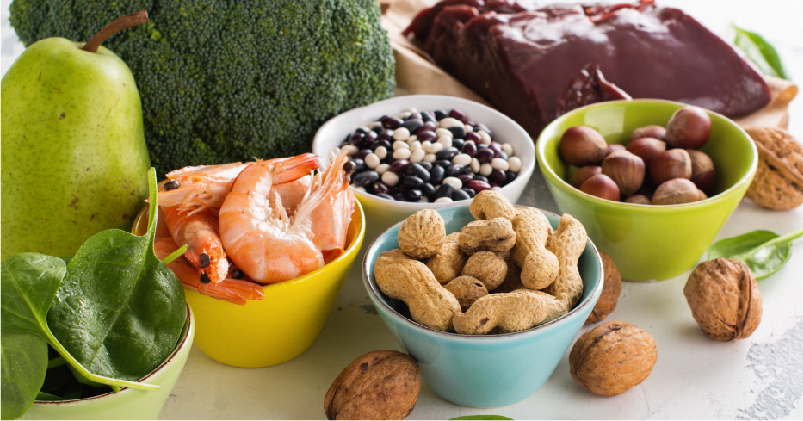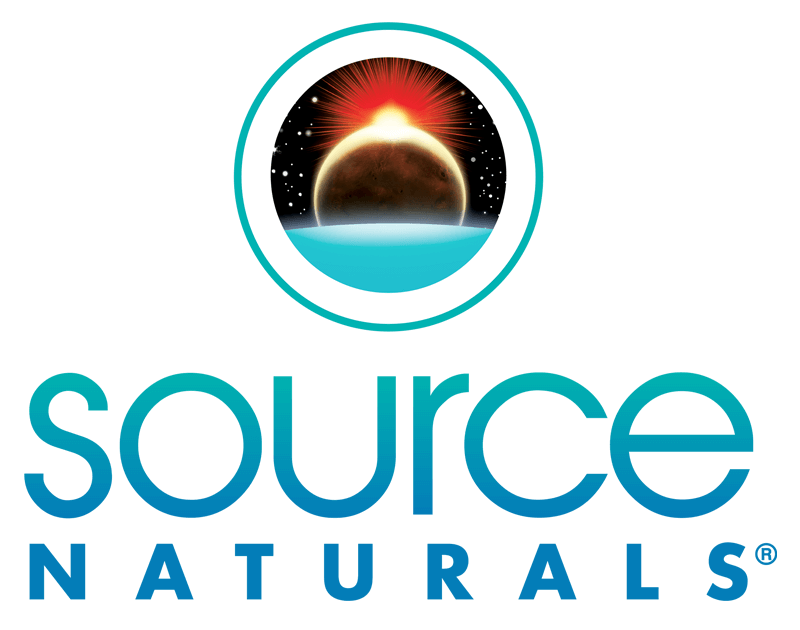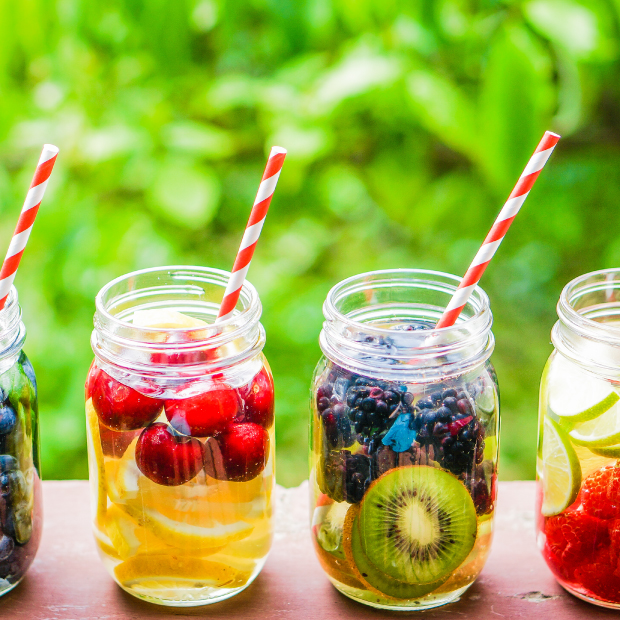
Did you know that iron is one of the most common nutrient deficiencies in the US? The Centers for Disease Control estimate that as many as 10% of American women have some level of iron deficiency.
Your body needs just enough iron: too little and you’ll develop anemia; too much and you’ll do damage throughout your body.
What Iron Does for Your Body
Iron is an essential mineral. All of your cells contain some iron, but most of it is in the hemoglobin that colors your red blood cells (RBCs), and in the myoglobin protein in your muscles.
Early humans evolved to keep enough iron in the body for growth, healthy pregnancies, and survival through periods of starvation. Iron is key to transporting oxygen to and carbon dioxide from cells; it helps transmit nerve impulses for coordinated muscle movement; and it’s key for energy production, metabolism, and immune, reproductive, and central nervous system health.
Without iron, you can’t make enough RBCs and your tissues can’t get enough oxygen—which affects everything from brain function to your immune system. If you have more iron than your body needs at the moment, it can be stored in the liver, spleen, and bone marrow for future use.
But there’s a flip side: too much iron can be neurotoxic and has been linked to a variety of neurological conditions, from strokes to Alzheimer’s and Parkinson’s. Researchers theorize that excess iron supports generation of cell-damaging free radicals, which may speed aging.
What’s a Healthy Iron Balance?
How much iron you need varies—but on average, most healthy Americans get the iron they need from food.
In specific situations, supplemental iron may be useful:
- Iron deficiency anemia: Insufficient iron in your RBCs is the most common form of anemia in the US. Iron-dependent enzymes involved in energy production and metabolism are the first to be affected, hence the most common signs of iron deficiency: fatigue, weakness, and difficulty concentrating.
- Pregnancy and nursing: Pregnancy uses a lot of iron for the fetus and placenta, in blood loss during delivery, and for lactation.
- Iron-deficient diet: There are two kinds of iron: heme (from animals) and non-heme (from plants). Animal iron is much more bioavailable, so vegetarians/vegans need to prioritize iron in their diet.
- Dialysis: The kidneys make erythropoietin, which stimulates RBC production; anemia is a frequent side effect of kidney disorders.
- Medications: Antibiotics and medications for gastrointestinal issues, blood pressure, and cholesterol can deplete iron.
Iron needs also vary by age and sex. Through childhood, boys’ and girls’ iron needs are the same. Once she starts menstruating, a woman’s daily iron requirements jump to 18mg/day versus men’s 8mg/day. After menopause, women’s and men’s iron needs are again the same.
More Iron Isn’t Better
Iron is so essential that your body is highly efficient at storing it—but not at eliminating oversupply. Accumulating too much iron can be dangerous.
Adults shouldn’t exceed 45mg of essential iron per day, unless by prescription. Children can accidentally ingest a toxic amount, so keep iron supplements out of reach. And don’t take iron if you’ve been diagnosed with any iron overload issue.
Food Sources of Iron
Experts advise getting your iron first from whole foods—it’s hard to get too much iron from a balanced diet.
If your iron is low to start, eating iron-rich foods may still not be enough; in that case, you may want to consider a supplement.
| Best |
|
|
Good
|
|
What to Know About Iron Supplements
Ferrous sulfate is the most common form of iron supplement. It’s better absorbed by the body and contains 33% elemental iron (what your body can use).
It also has some common side effects, such as constipation and gastrointestinal upset. An empty stomach absorbs iron better, but many people take it with food to avoid issues.
Other forms of iron, like ferrous bisglycinate and ferric pyrophosphate, are good alternatives that are highly bioavailable and easier on an empty stomach.
Vitamin C enhances iron absorption. Try combining iron-rich and C-rich foods (like putting strawberries in your spinach salad) or taking your iron with orange juice.
Other minerals—especially calcium, magnesium, and zinc—can interfere with iron absorption, so don’t take your iron with a calcium supplement, milk, or caffeine.
Resources
Iron is a fascinating and inimitable nutrient. Learn more about it in the resources we used for this article.
Berkeley Wellness, “The Good and Bad of Iron,” BerkeleyWellness.com, 4/30/13. Accessed 3/6/19.
Christine Byrne, “Your Guide to Iron When You’re Totally Plant-Based,” WellAndGood.com, 2/11/19. Accessed 3/6/19.
Melissa Diane Smith, “Who Should Take Iron Supplements?” Better Nutrition, 5/1/18. Accessed 3/6/19.
Michael T. Murray, “Iron Deficiency: Symptoms, Diagnosis & Supplements,” Better Nutrition, 3/1/14. Accessed 3/6/19.
Office on Women’s Health, WomensHealth.gov. Accessed 3/6/19.
Stephanie Watson, “What You Need to Know About Iron Supplements,” WebMD.com, 7/12/11. Accessed 3/6/19.
Susan York Morris and Rachel Nall, “10 Reasons Why You Might Need Iron Supplements,” Healthline.com, 8/16/16. Accessed 3/6/19.
Tracee Cornforth, “Common Side Effects of Iron Supplements for Anemia,” VeryWellHealth.com, 6/8/18. Accessed 3/6/19.
US National Library of Medicine, “Taking Iron Supplements,” MedlinePlus.gov, 1/28/19. Accessed 3/6/19.
WebMD, “Vitamins & Supplements: Iron,” WebMD.com, undated. Accessed 3/6/19.









